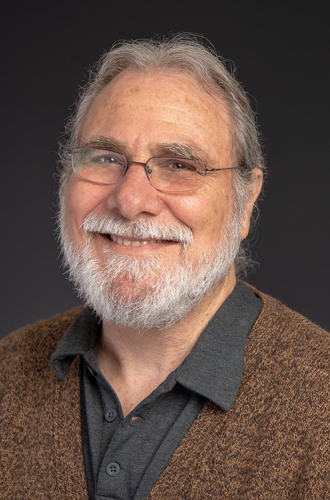-

-
Philip J Morrison
Professor, Affiliated Faculty, Oden Institute
Department of Physics, Oden Institute
Texas Atomic Energy Research Foundation Professorship (Holder)Basic nonlinear plasma dynamics; Hamiltonian dynamics of few and infinite degree-of-freedom systems; fluid mechanics Research Interestsmorrison@physics.utexas.edu
Phone: 512-471-1527
Office Location
POB
Postal Address
2515 SPEEDWAY
AUSTIN, TX 78712-
Ph.D., University of California, San Diego (1979)
Research Interests
Basic nonlinear plasma dynamics; Hamiltonian dynamics of few and infinite degree-of-freedom systems; fluid mechanics.I am a mathematical/theoretical physicist with broad interests. I am a skeptic by nature and find the most satisfaction with science that tends toward mathematical rigor or proximity to experimental data. As a member of the Institute for Fusion Studies, I have worked on basic and applied plasma physics problems. I have been associated with the Geophysical Fluid Dynamics Program for twenty years, and as a member of its faculty have worked on basic and applied fluid mechanics problems. I have investigated the nonlinear Hamiltonian dynamics of few and infinite degree-of-freedom systems for many years. It is this brand of theoretical nonlinear dynamics, Hamiltonian chaos theory, that I find most interesting. I have also worked on developing and applying advanced computational algorithms, in part through my affiliation with the ICES Applied Mathematics Group.
-
Selected Publications
172. Z. Yoshida and P. J. Morrison, "Unfreezing Casimir Invariants: Singular Perturbations Giving Rise to Forbidden Instabilities,” to appear in Spectral Analysis, Stability and Bifurcations in Nonlinear Physical Systems, eds. O. Kirillov and D. Pelinovsky (Wiley, 2013) accepted Feb. 2013.
171. N. J. Balmforth, P. J. Morrison, and J.-L. Thiffeault, "Pattern Formation in Hamiltonian Systems with Continuous Spectra; a Normal-Form Single-Wave Model,” Review of Modern Physics, commissioned (2013).
170. P. J. Morrison, E. Tassi, and N. Tronko, "Stability of Compressible Reduced Magnetohydrodynamic Equilibria – Analogy with Magnetorotational Instability,”Physics of Plasmas 20, 042109 (10pp) (2013).
169. Y. Cheng, I. M. Gamba, F. Li, and P. J. Morrison, "Discontinuous Galerkin Methods for the Vlasov-Maxwell Equations,” submitted (2013).
168. M. Hirota, P. J. Morrison, Y. Ishii, M. Yagi, and N. Aiba, "Nonlinear Variational Method for Predicting Fast Collisionless Magnetic Reconnection,” Nuclear Fusion 20, 063024 (11pp) (2013).
167. F. Valentini, D. Perrone, F. Califano, F. Pegoraro, P. Veltri, P. J. Morrison, and T. M. O'Neil, "Response to Comments on 'Undamped Electrostatic Plasma Waves' [Phys. Plasmas 19, 092103 (2012)],” Physics of Plasmas 20, 034702 (4pp) (2013).
166. P. J. Morrison, M. Vittot, and L. de Guillebon, “Lifting Particle Coordinate Changes of Magnetic Moment Type to Vlasov-Maxwell Hamiltonian Dynamics,” Physics of Plasmas 20, 032109 (9pp) (2013).
165. P. J. Morrison, “A General Theory for Gauge-Free Lifting,” Physics of Plasmas 20, 012104 (14pp) (2013).
-
- 2013 Agostinelli International Prize, Accademia Nazionale dei Lincei, Rome, Italy
- 2013 College of Natural Sciences Teaching Excellence Award
- 2012 Honored by Special Issue of CNSNS 17 (5)
- 2011 Chair’s Fellow, Department of Physics, The University of Texas at Austin
- 2010 Dynamics Days South America, Plenary Talk, Brazil
- 2009 Props for Profs, Certificate of Appreciation for Physics 302L
- 2006 Dean’s Fellow, College of Natural Sciences, The University of Texas at Austin
- 1992 Fellow of the American Physical Society
- 1988 Dad’s Association Centennial Teaching Fellowship
- 1982 Natural Sciences Council Teaching Excellence Award
-














